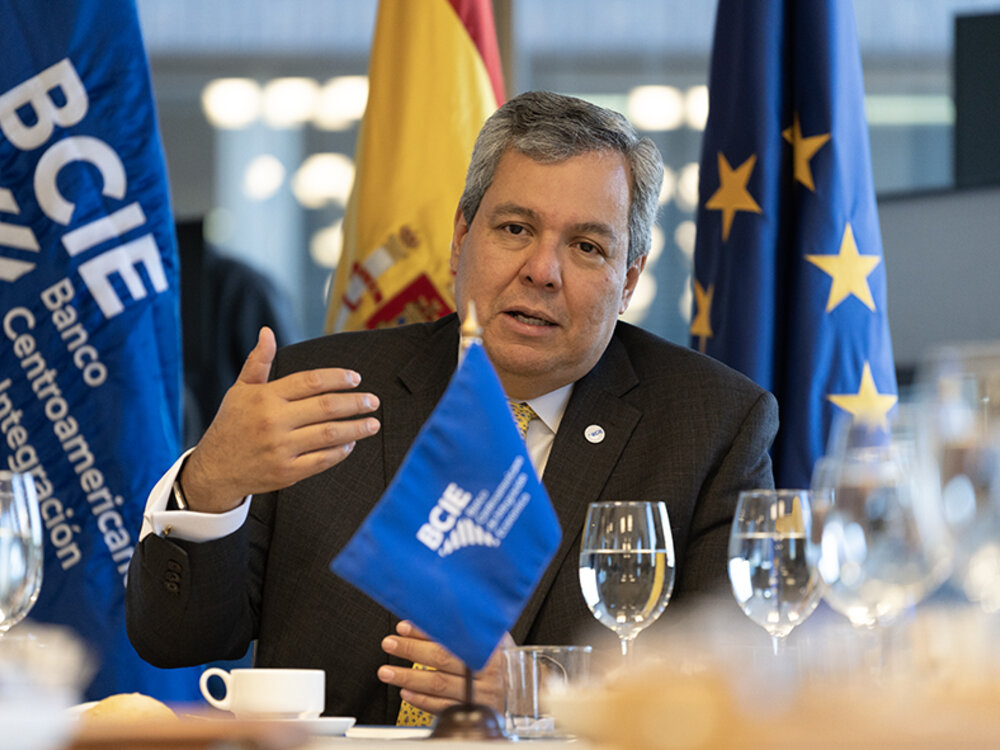CABEI to inaugurate its Representative Office in Spain and invites national companies to participate in Central America's development

- The financial institution is looking for Spanish partners, mainly engineering, construction, and infrastructure companies.
- CABEI invests close to US$3 billion annually in the Central American region.
Madrid, February 13TH, 2023. The Central American Bank for Economic Integration (CABEI), a multilateral financial institution for the integration and balanced economic and social development of Central American countries, began its visit to Spain today, Monday, which will take the institution to hold meetings at the highest level with governmental organizations, financial and educational institutions and companies, mainly from the construction and engineering sectors.
CABEI inaugurates, this week, its Representative Office in Spain, located in Madrid, the first office of its kind on European soil and whose objective is to capitalize on the special relationship between the entity and Spain, the bank's extra-regional partner since 2005.
CABEI President, Dr. Dante Mossi, expressed his satisfaction with this step in the right direction towards a more intense relationship with Spanish companies and institutions, and stated that "it will contribute to generating a greater number of opportunities and the mobilization of resources for operations with which to continue advancing in the diversification of economic activities, regional integration and the improvement of social cohesion between the two regions.”
Mossi told the media that "the opening of this office will facilitate the attraction of quality investments and the generation of employment across the Atlantic. We believe that Spain is a natural partner, we speak the same language, and we share the same values.”
The bank’s economist and president indicated that CABEI currently has "US$7 billion in capital, and we want to raise it to US$10 billion. We hope that Spain will join us on this journey to increase the bank's lending capacity".
More than half of the funds that reach the Central American region do so through CABEI, which makes it a first-rate agent for boosting the economies of these countries. Mossi pointed out that "we are not asking for money to be given away, but rather we are going to bring companies of a good technical level to carry out the best possible engineering designs. We invest US$3 billion in annual contracts in the region; we have the best financial rating in Latin America. If we are involved in financing, the principle will always be that the company must be sure of receiving payments. We are a bank that guarantees payment of all contracts, whether engineering or construction."
CABEI's President highlighted the good relations with the Spanish Government through the Minister of Economic Affairs and Digital Transformation, Nadia Calviño, and the bank's intention to meet with French authorities to broaden the horizons of collaboration. "European central banks and pension funds are helping us a lot, and in fact they have underwritten a third of the last debt issuance that CABEI made."
Round of contacts in Spain
During its stay in Madrid, the organization will establish a round of contacts with French, United Kingdom and German authorities, as well as with representatives of cooperation agencies with which CABEI has close relations. On Thursday, a meeting is scheduled with the Official Credit Institute (OCI) for the signing of an agreement. Likewise, there will be meetings with Spanish universities and innovation centers linked to the agricultural sector, with which it has already signed several agreements, and with which it will now converse to tell them that they are ready to work.
Since joining CABEI, Spain has been promoting trade and investment with Central America through various support and financing mechanisms. As of 2023, Spain is the only European economy in CABEI with a subscribed capital of US$280 million in CABEI, with a 4.21% shareholding, and capital payments totaling US$70 million. It also holds a permanent seat on the Board of Directors, the governance body that represents the institution.





